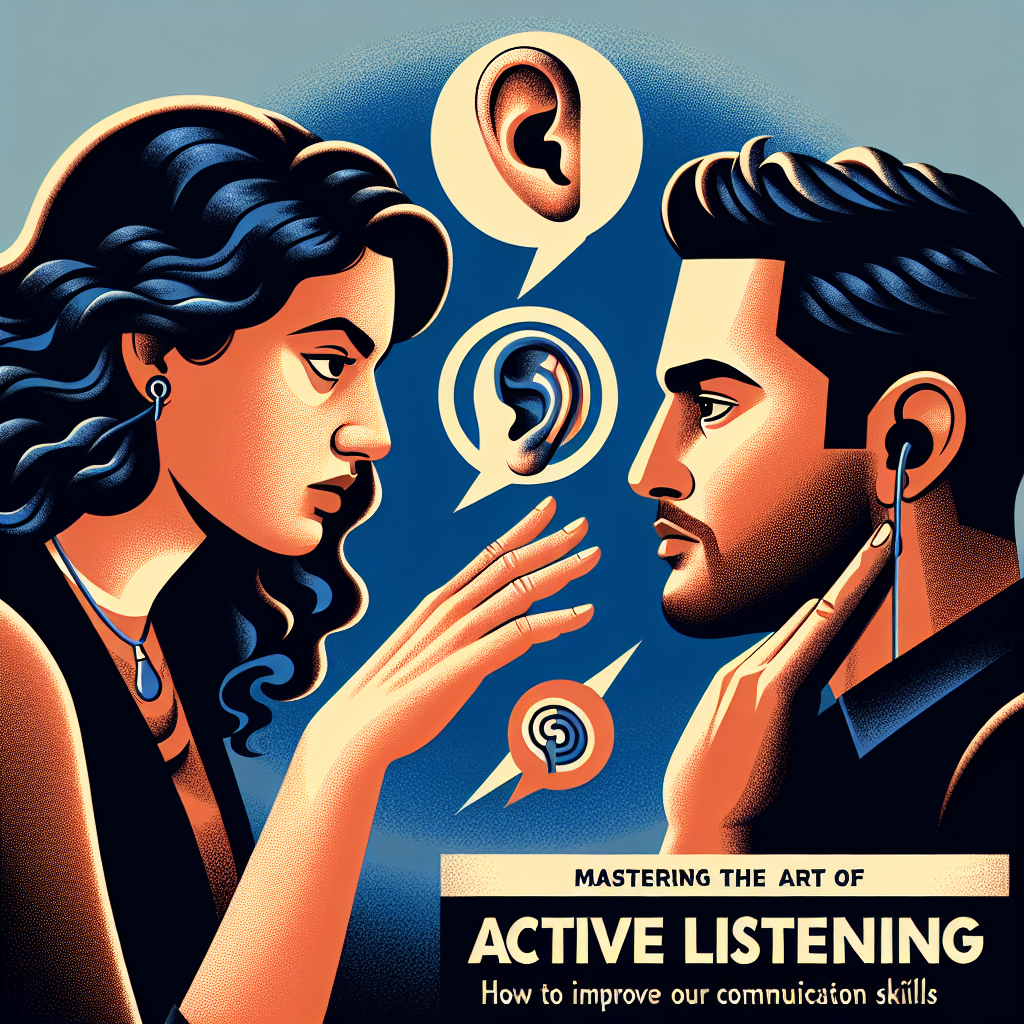Mastering the Art of Active Listening: How to Improve Your Communication Skills
In our fast-paced world, effective communication is more important than ever. Whether it’s in your personal or professional life, being able to communicate effectively can make all the difference in building strong relationships and achieving your goals. One key aspect of effective communication is active listening.
Active listening is a skill that involves fully engaging with the person speaking, focusing on their words and emotions, and providing appropriate feedback. It’s about being present in the moment, showing empathy, and truly understanding the other person’s perspective. By mastering the art of active listening, you can improve your communication skills and build stronger connections with those around you.
Here are some tips to help you become a better active listener:
1. Maintain eye contact: When someone is speaking to you, make sure to maintain eye contact. This shows that you are fully engaged in the conversation and are actively listening to what the other person is saying.
2. Avoid distractions: Put away your phone, turn off the TV, and eliminate any other distractions that might take your focus away from the conversation. By giving the speaker your full attention, you show respect and demonstrate that you value what they have to say.
3. Show empathy: Try to put yourself in the other person’s shoes and imagine how they might be feeling. Show empathy by nodding, smiling, and using facial expressions to convey that you understand and care about their perspective.
4. Ask clarifying questions: If you’re not sure about something the other person said, don’t be afraid to ask for clarification. Asking questions shows that you are actively engaged in the conversation and are interested in understanding the speaker’s point of view.
5. Paraphrase: Summarize what the other person said in your own words to show that you are actively listening and processing their message. This also helps to clarify any misunderstandings and ensures that you are on the same page.
6. Provide feedback: Offer feedback to the speaker by acknowledging their feelings, thoughts, and concerns. This shows that you are actively listening and empathizing with their experience.
7. Practice mindfulness: Stay present in the moment and focus on the conversation at hand. Avoid thinking about what you’re going to say next or getting distracted by other thoughts. Be fully engaged in the present moment to show that you are actively listening.
By incorporating these tips into your daily conversations, you can become a better active listener and improve your communication skills. Active listening not only helps to build stronger relationships but also allows you to understand others more deeply and resolve conflicts more effectively.
FAQs
Q: What is the difference between active listening and passive listening?
A: Active listening involves fully engaging with the speaker, focusing on their words and emotions, and providing appropriate feedback. Passive listening, on the other hand, involves simply hearing what the other person is saying without actively engaging or showing empathy.
Q: How can active listening improve communication?
A: Active listening improves communication by showing respect, empathy, and understanding to the speaker. It helps to build stronger relationships, resolve conflicts, and promote mutual understanding.
Q: What are some common barriers to active listening?
A: Some common barriers to active listening include distractions, lack of empathy, preconceived notions, and the desire to formulate a response while the other person is speaking.
Q: Can active listening be learned?
A: Yes, active listening can be learned through practice and mindfulness. By incorporating active listening techniques into your daily conversations, you can improve your communication skills and become a better listener.
In conclusion, mastering the art of active listening is an important skill that can greatly improve your communication skills and strengthen your relationships. By being present in the moment, showing empathy, and providing appropriate feedback, you can become a better listener and build stronger connections with those around you. Practice active listening in your daily conversations and watch as your communication skills improve and your relationships thrive.





Leave A Comment